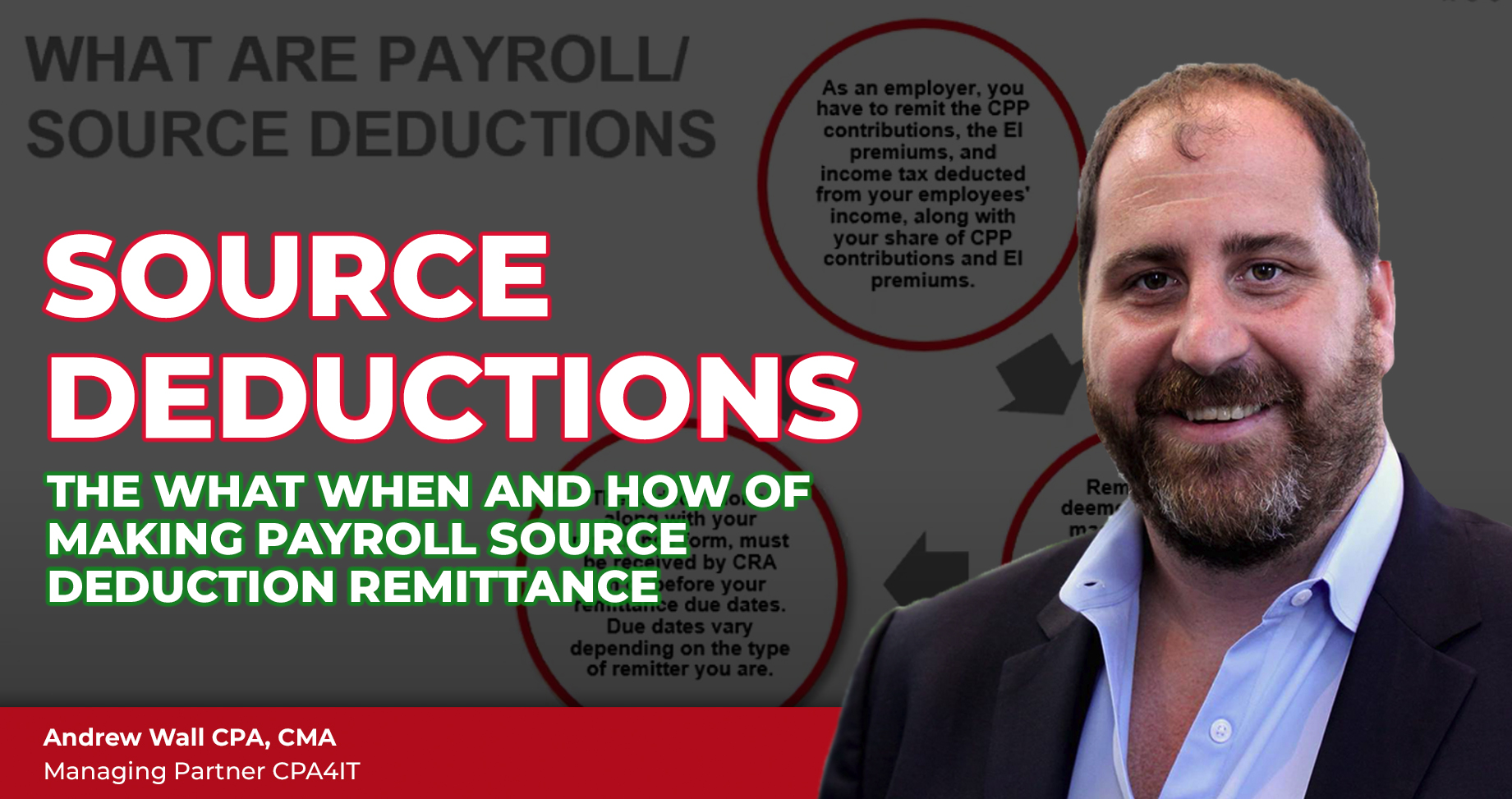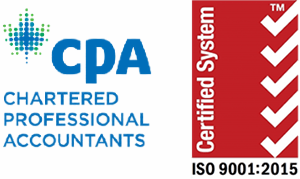www.cpa4it.ca is a virtual accounting firm specializing in independent contractors, freelancers, and small businesses. We are experts on important industry topics including employee vs. contractor, personal business service risk, incorporation setup, industry benchmarking, and holding companies. Let’s jump into understanding source deductions and payroll. So the big question is, what are they? So payroll source deductions are essentially the taxes that are withheld by the employer from the employee’s paycheck and remitted to the CIA on their behalf.
If you were ever a full-time employee anywhere if someone pays you a salary of one hundred thousand dollars, you know, they didn’t actually give you one hundred thousand dollars, they maybe took thirty thousand or so of that off and remitted that to the government. Now, when they remitted that to the government is whole, is completely dependent on the different thresholds that we have.
Typically, you’re going to pay your source deductions. We tell everyone to pay by the third day of the following month in which you have paid your employees. It could be the third, the tenth, or the fifteenth. And we’ll talk about what those different deadlines are. But for all of our clients, we’re telling you to pay by the third of the third day of the following month. And since the last day that you can pay source deductions in the calendar year is going or the last day that you can pay a salary in the current year is December 31st. The source deductions are going to be due by the 3rd of January.
This is why we’re putting together these sessions now because if anyone needs to declare salary for the twenty twenty year and they haven’t done so already, they need to make a remittance and pay it to the CRA before January 3rd. The penalties for this can be quite extensive. Now most employees are probably used to having money taken off weekly or biweekly paycheck and then given to the government on a monthly or bi-monthly basis. It’s done a little bit different for our clients because most of them are owner managers of their business. And the money that they take out throughout the course of the year is actually a loan that they’re taking from the corporation, which they do pay interest on. And at the end of the year, we look at the balance of that loan to declare how much of that is going to be salary. So there’s a number of questions for figuring out whether indeed you need to make a payroll source deduction remittance for the two thousand and twenty year end.
So if you are brand new to this and brand new to, this is the first time that you’ve set up a corporation, the first question you want to ask yourself is, do I have any income? From any other sources, like wasn’t I am an employee for the first three, four or five, six months of the year and I have income from that full-time employment or maybe from investments or rental property or anything else, because if you do have income from those other sources and they’re above, you know, the basic income threshold, which is if a basic tax exemption, that’s at about twelve thousand dollars.







